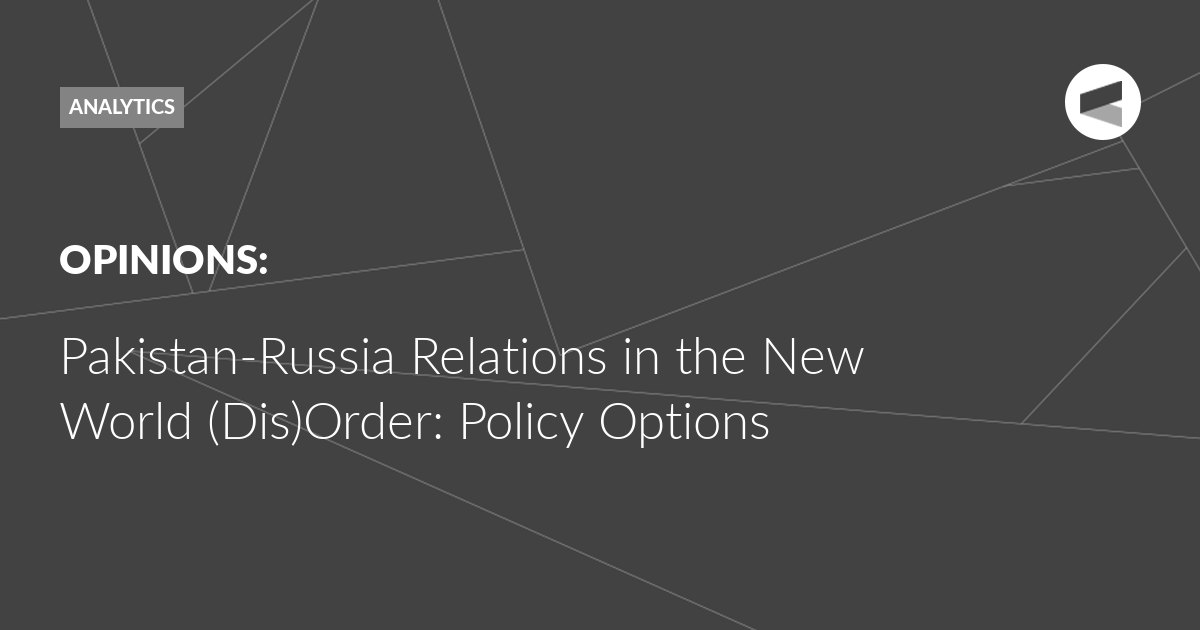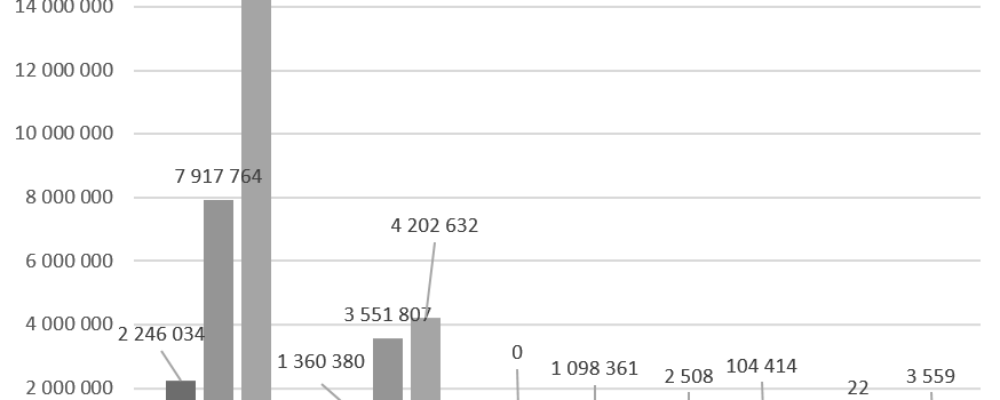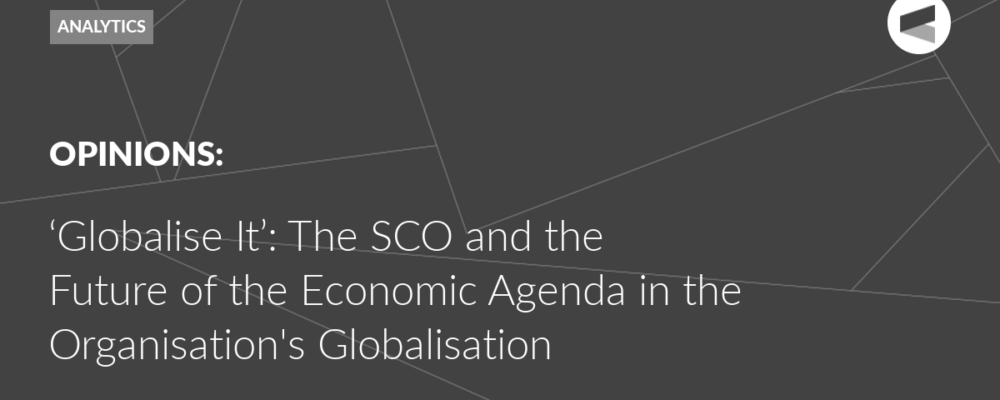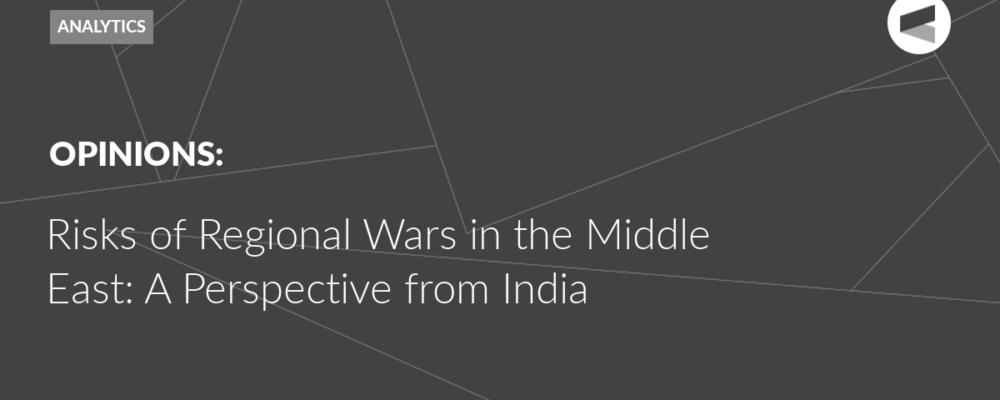Both Russia and Pakistan are significant in terms of their population size, but their social and economic profiles diverge sharply. Fortunately, in 2023 and 2024, the economic partnership between Pakistan and Russia moved beyond rhetoric into tangible progress.
In October 2024, Moscow hosted the inaugural Pakistan-Russia Trade and Investment Forum, an event that drew over 70 Pakistani business leaders as well as representatives from more than 100 Russian companies. The forum provided a platform for signing several agreements across sectors like agriculture, textiles, and information technology. Pakistani officials highlighted that bilateral trade had surpassed $1 billion in the preceding year–a significant milestone that underscored the untapped potential of this economic relationship.
Energy cooperation remained central to the evolving partnership. During the 8thsession of the Pakistan-Russia Intergovernmental Commission in Islamabad in early 2023, both countries set out ambitious plans to bolster their energy trade. A framework was discussed for Russia to supply crude oil, LNG, and petroleum products to Pakistan under favourable commercial terms. By mid-2023, these discussions had materialized into agreements, with Russia supplying Pakistan with crude oil at discounted rates, providing some relief to Pakistan’s struggling energy sector. These initiatives culminated in a comprehensive MoU signed in September 2024, covering energy, trade, and defence cooperation.
Perhaps the most intriguing development has been the revival of barter trade. Sanctions have constrained Russia’s ability to conduct transactions in major international currencies, forcing Moscow to seek alternatives. At the Pakistan-Russia Trade and Investment Forum in October 2024, Russian agricultural firm Astarta-Agrotrading struck a deal with Pakistani companies to exchange chickpeas and lentils for tangerines and potatoes. These unconventional arrangements illustrate how both countries are finding ways to sustain economic ties amidst systemic barriers.
In October 2024, during the SCO Heads of Government meeting in Islamabad, Russian Prime Minister Mikhail Mishustin and Pakistani Prime Minister Shehbaz Sharif discussed strengthening ties in trade, energy, and connectivity, reflecting the ongoing importance of the SCO as a platform for bilateral and regional cooperation.
Pakistan’s potential inclusion in BRICS Plus, a framework celebrated for its flexible and inclusive cooperation, presents intriguing possibilities for multilateral collaboration. Pakistan’s geography offers economic advantages not just for China but for other BRICS member states as well. CPEC’s infrastructure is already transforming regional connectivity, and its integration into BRICS Plus could further amplify its reach. By linking China, Russia, Central Asia, and Iran, Pakistan becomes a pivotal bridge between Eurasia’s vast continental expanse and the Southern Maritime Vector through the Gwadar port.
At the heart of this relationship lies a recognition of the power of exchange. Pakistan and Russia must weave a fabric of connectivity, drawing on each other’s strengths. Civil society and academia can play pivotal roles here, fostering ties through scholarly exchanges and creating linkages between policy experts. Such initiatives are not mere diplomatic gestures; they are essential for reshaping perceptions and deepening socioeconomic bonds. Cultural and educational exchanges will also play a vital role. People-to-people contact, whether through student exchanges, faculty collaborations, or research initiatives, creates trust and fosters a sense of shared purpose.
A parliamentary caucus dedicated to Pakistan-Russia cooperation could serve as a cornerstone for this relationship. Embassies and chambers of commerce should host forums that draw together the business community and local stakeholders, emphasizing the tangible benefits of cooperation in trade, governance, and innovation. Luckily last year, Russian Speaker from the Federal Assembly, Valentina Matvienko visited Pakistan to bring such political engagement into action.
Yet, the road to economic integration is fraught with challenges. Consumer preference barriers, entrenched by years of reliance on traditional trading partners, must be overcome. Financing mechanisms like credit lines and interactions between EXIM banks could facilitate trade transactions. Formal agreements, including the establishment of a free trade agreement (FTA), would provide the legal and institutional framework necessary for sustained economic engagement.
While challenges remain, including balancing relationships with other key regional players and addressing internal economic and security vulnerabilities, a well-coordinated and strategic approach can yield substantial benefits for Pakistan and the DragonBear.
The Valdai Discussion Club was established in 2004. It is named after Lake Valdai, which is located close to Veliky Novgorod, where the Club’s first meeting took place.
Please visit the firm link to site






